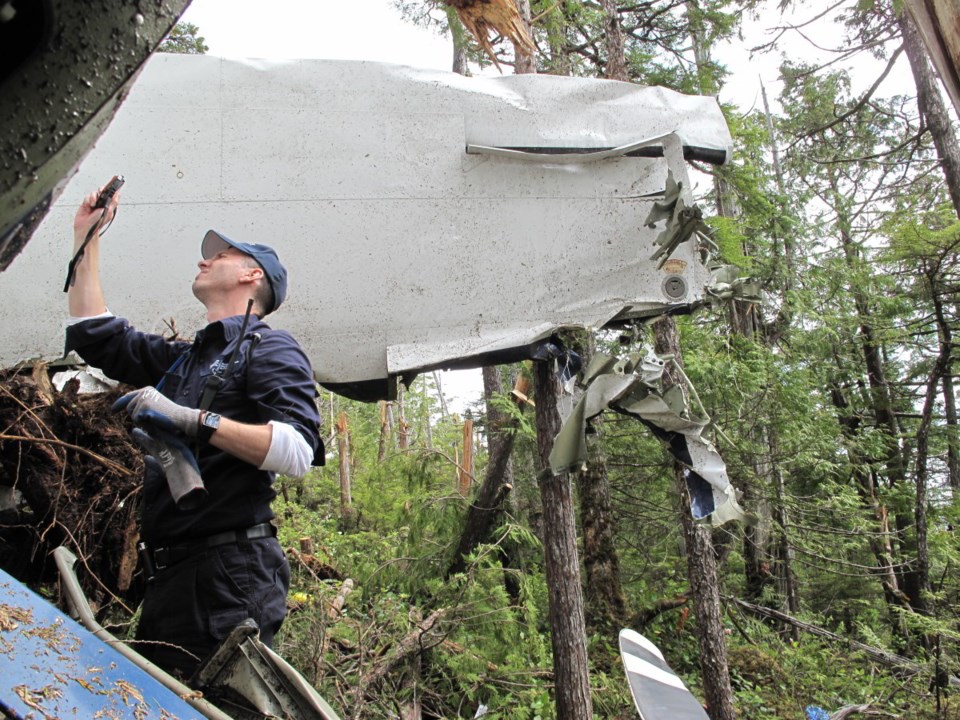The decision to continue flying in bad weather is being blamed for a plane crash in 2019.
Transportation Safety Board (TSB) of Canada issued a report on their findings during an investigation into the crash on of a seaplane, operated by Richmond-based Seair Seaplanes, on Addenbroke Island on July 26, 2019.
The chartered flight left the floatplane base in Richmond, B.C. and was on its way to Calvert Island, a recreational spot known for a popular fishing lodge near Port Hardy.
However, an hour and a half into the flight, the plane crashed into the hillside of the island taking the lives of the Seair Seaplanes’ pilot and three passengers.
Of the eight passengers, two survivors in critical condition were airlifted to Vancouver for treatment, while the other three survivors, in serious but stable condition, were taken to a local hospital.
The plane was destroyed in the crash.
TSB’s report said the pilot, believed to be Allen (Al) McBain, decided to continue the flight despite the forecasted weather conditions being lower than required.
“After encountering poor weather conditions, the pilot continued the flight in reduced visibility, without recognizing the proximity to terrain, and subsequently impacted the rising terrain of Addenbroke Island,” said the independent agency in the report, adding that the decision to take off “may have been influenced by group dynamics” as well.
“Although the aircraft was equipped with advanced avionics devices, they were configured in a way that made the system ineffective at alerting the pilot to the rising terrain ahead.”
Additionally, the report said the investigation showed the pilot may have been suffering from fatigue, which “most likely influenced the pilot’s performance, attention, vigilance, and general cognitive function” on the day of the accident.
The agency’s report added that Transport Canada (TC), which regulates safety and security standards for the aircraft industry, failed to conduct proper inspections and surveillance activities.
“If TC does not apply sufficient oversight of operators, there is a risk that air operators will be non-compliant with regulations or drift toward unsafe practices, thereby reducing safety margins.”
According to TSB, Seair has hired an aviation consulting company to conduct operational and maintenance reviews, update its standard operating procedures to highlight the limitations of the autopilot system and added an acceptable-use policy on personal electronic devices in the cockpit.
-With files from the Canadian Press


